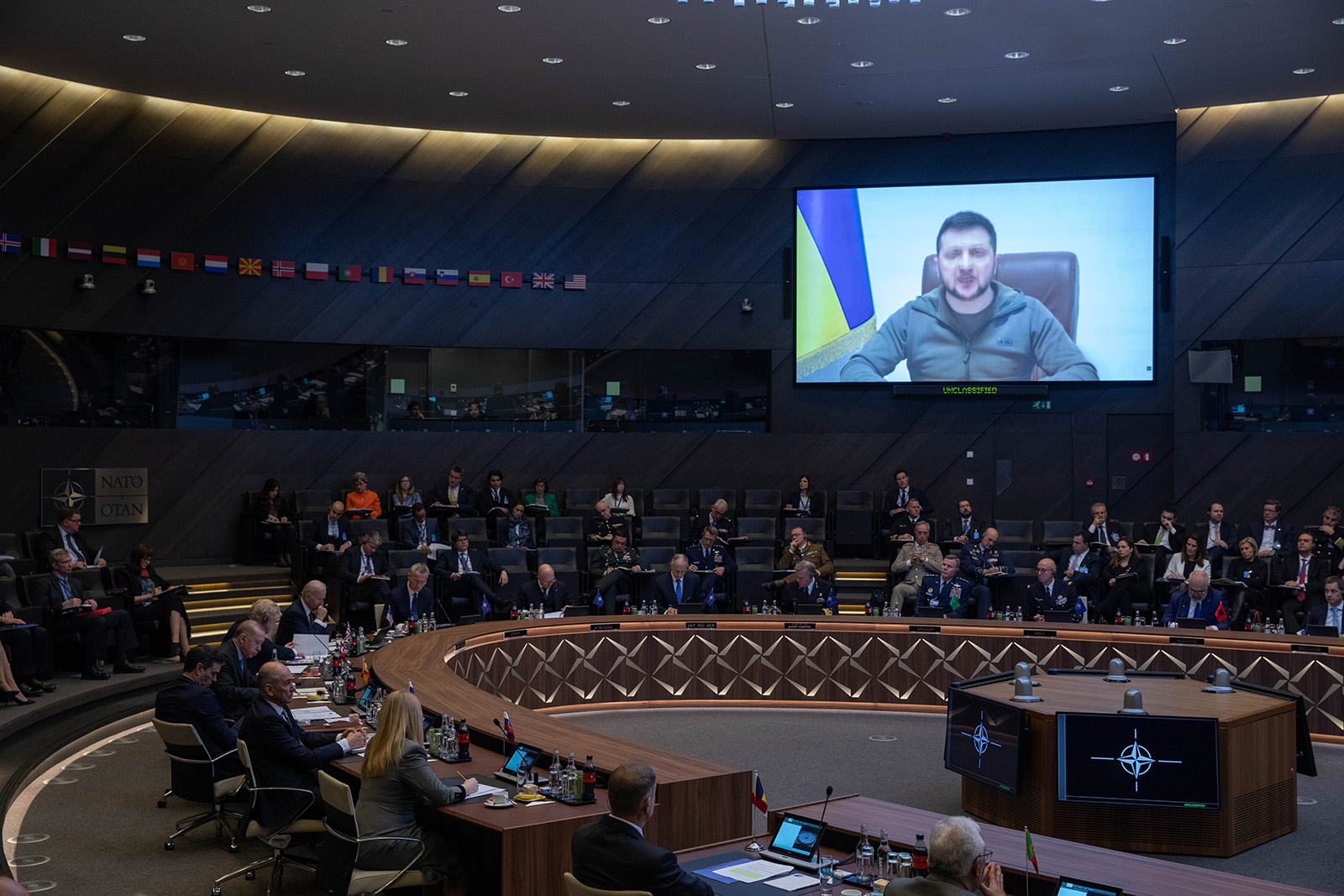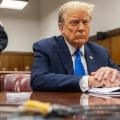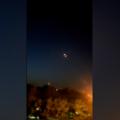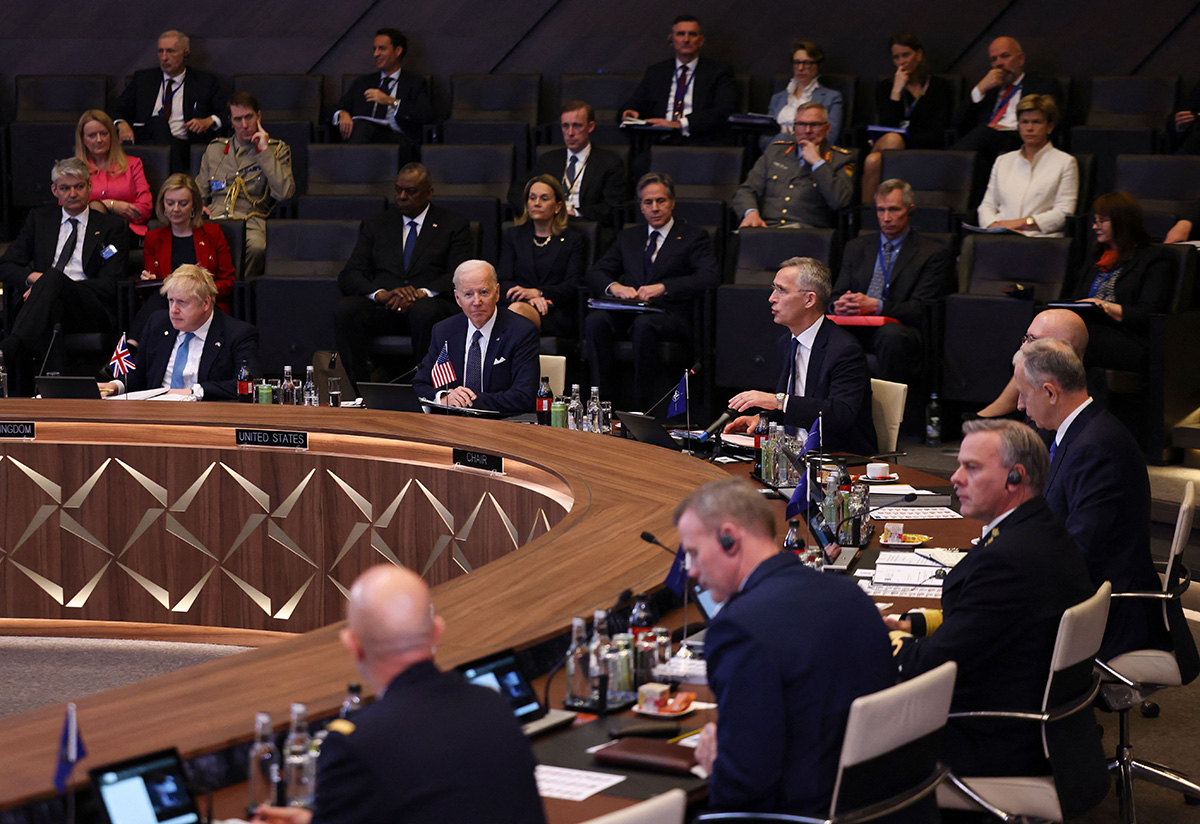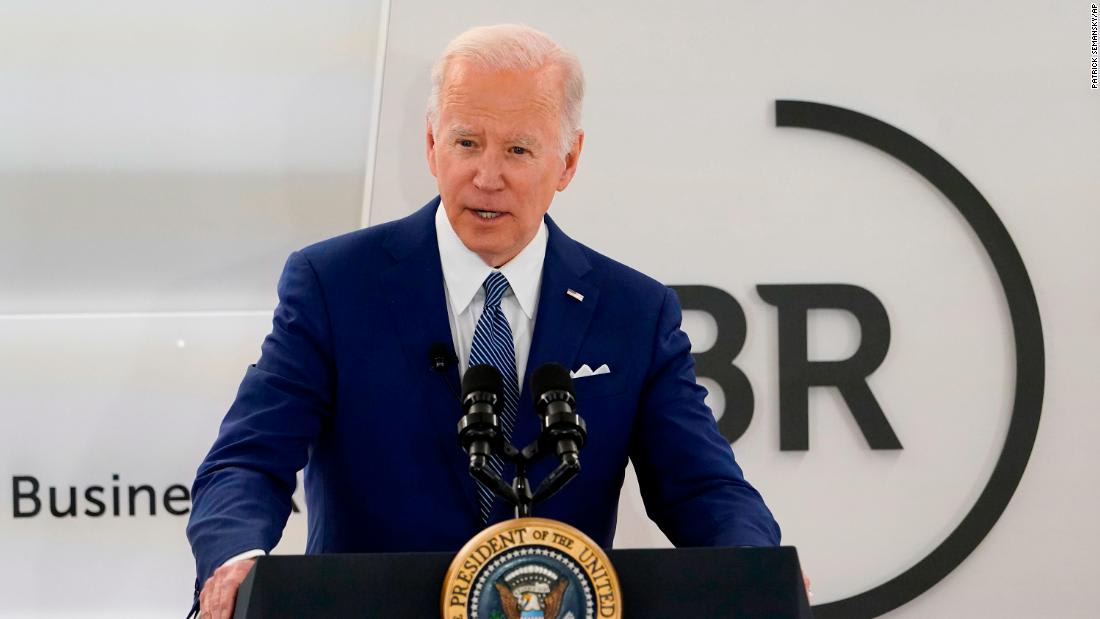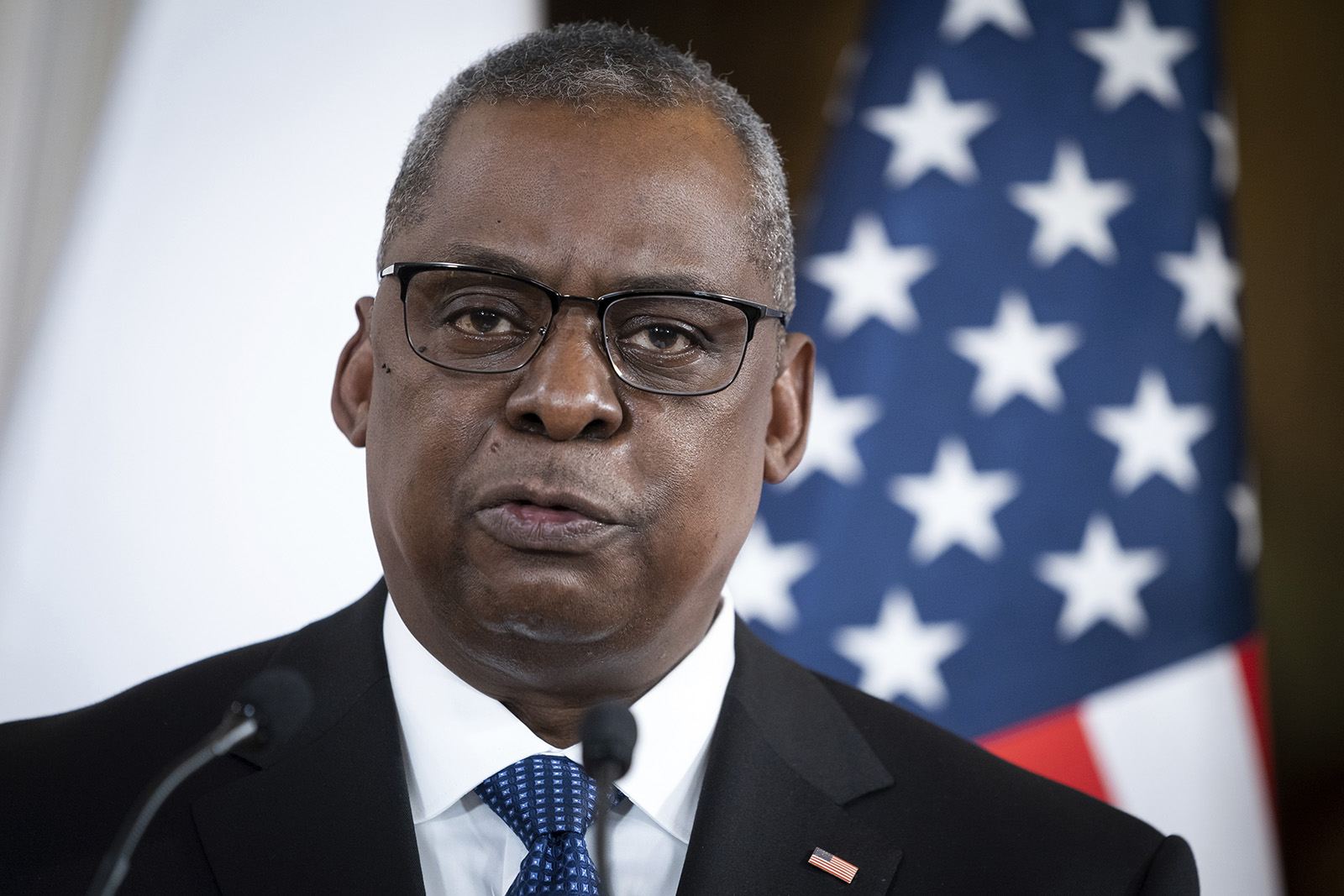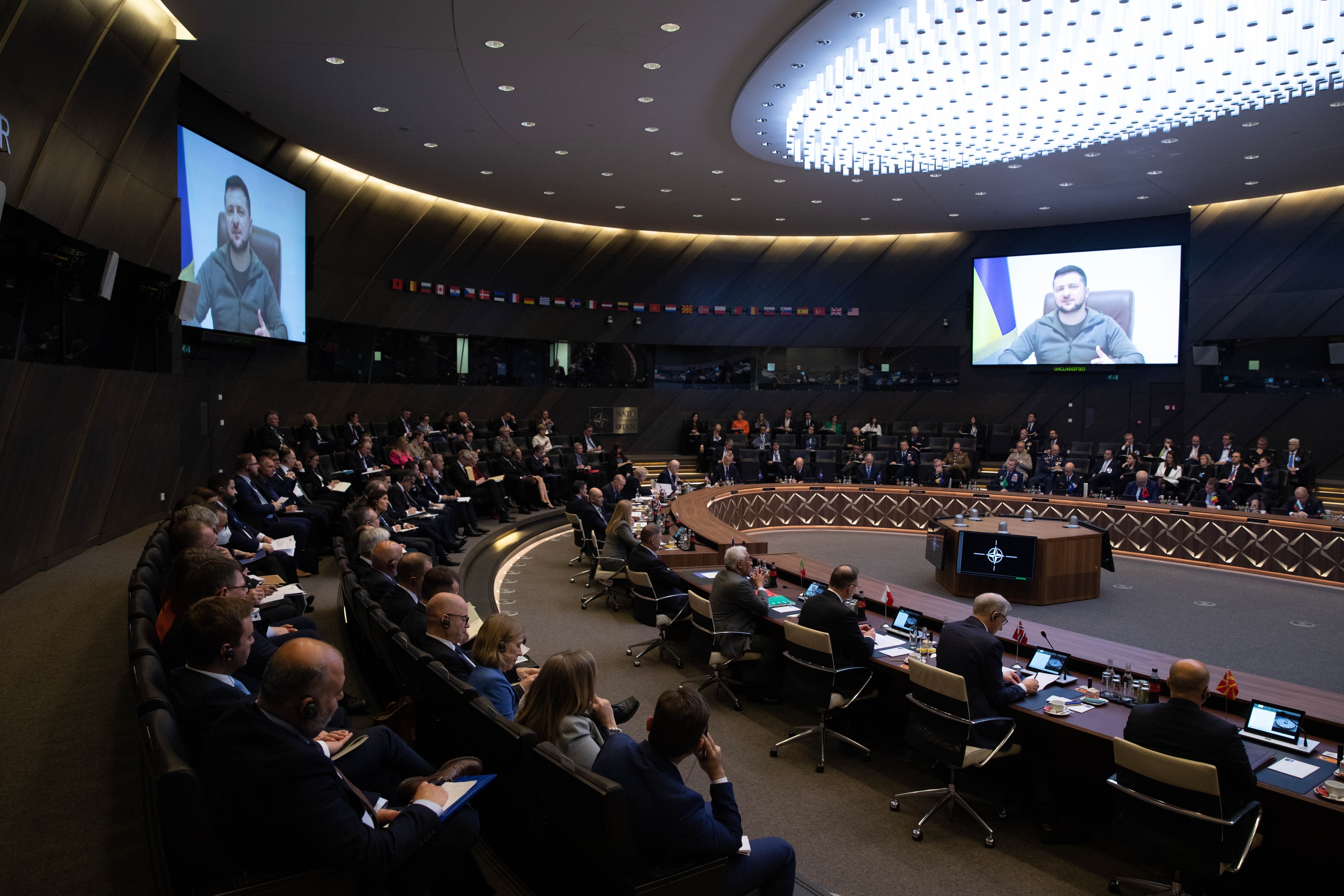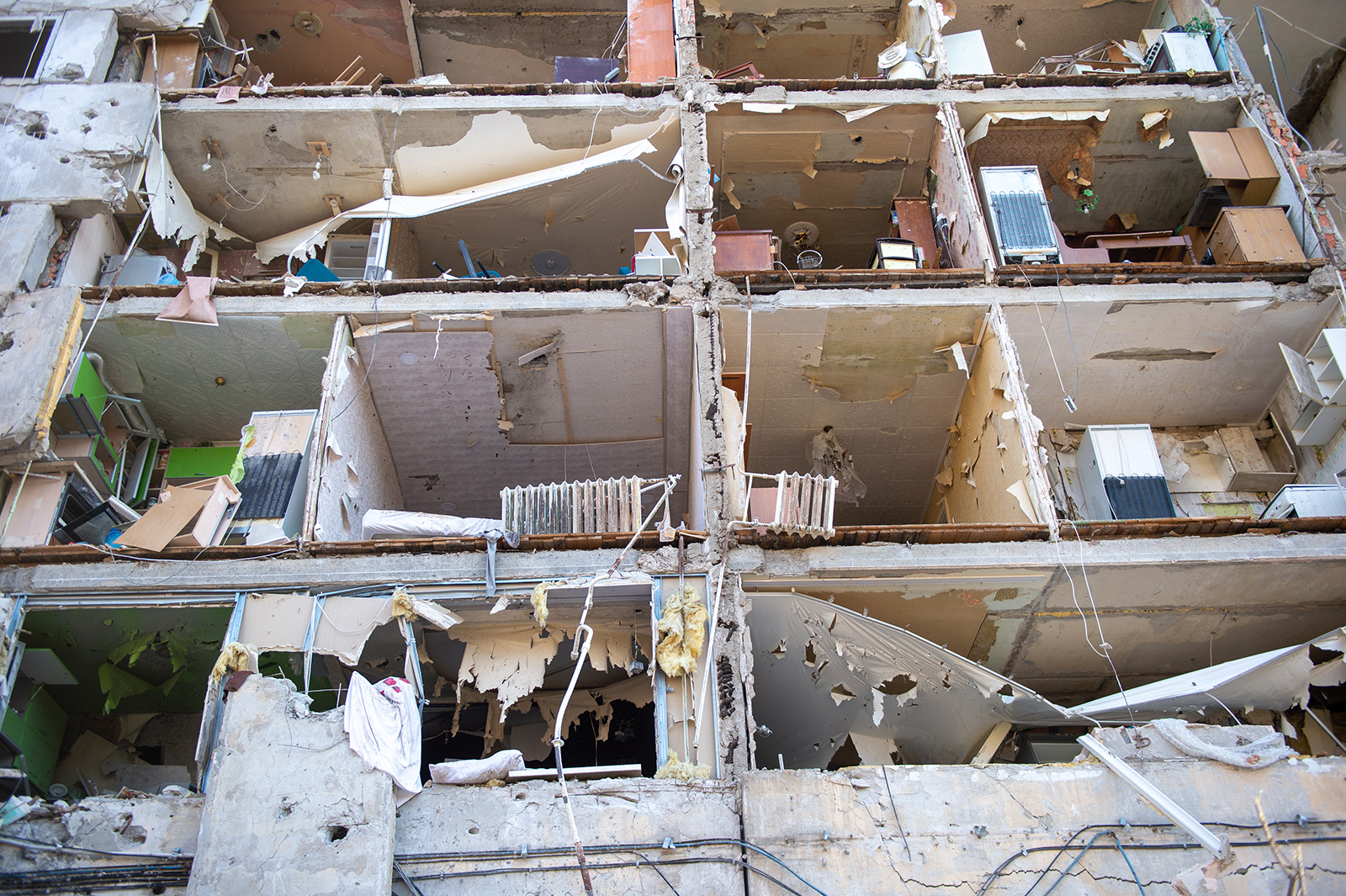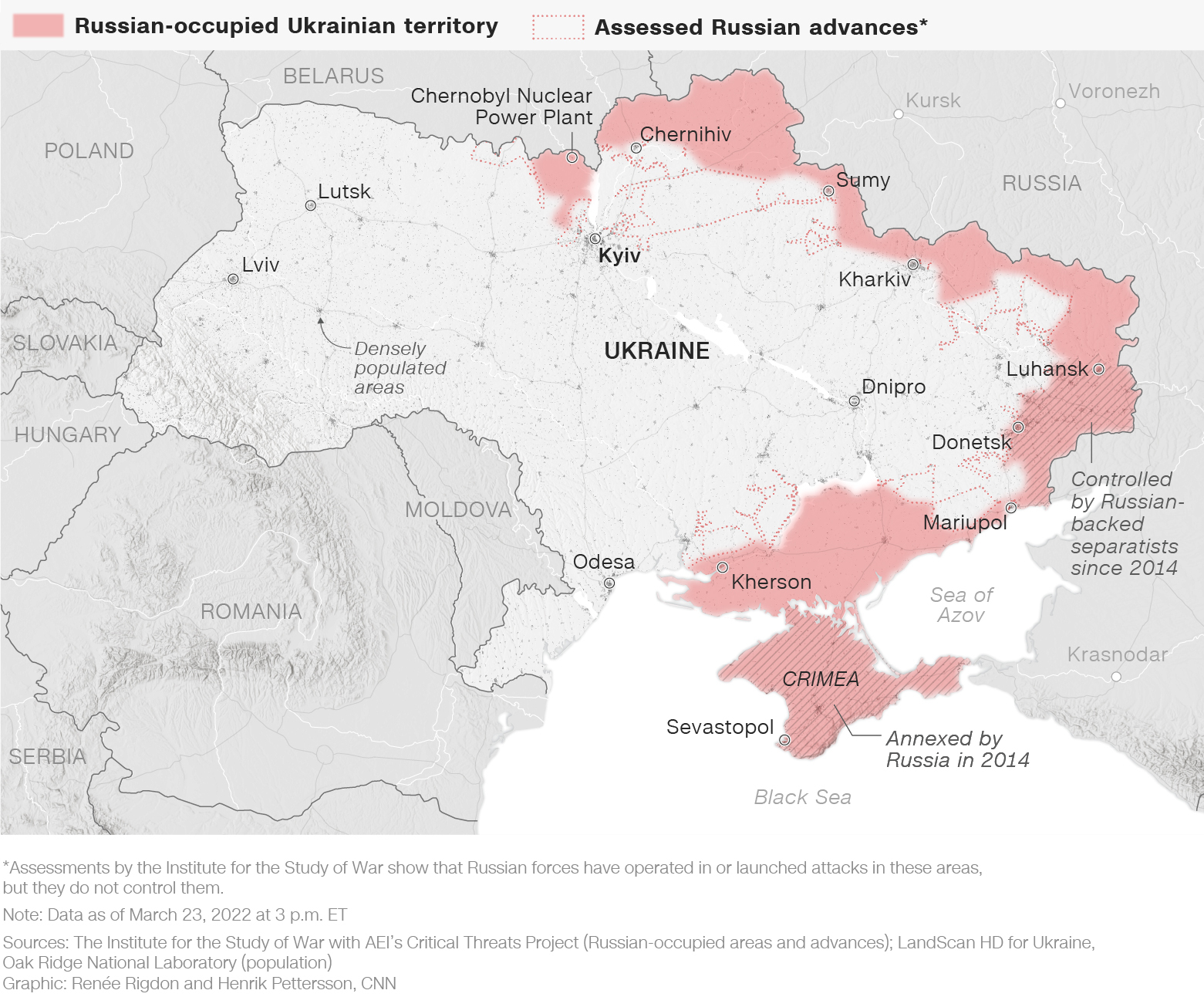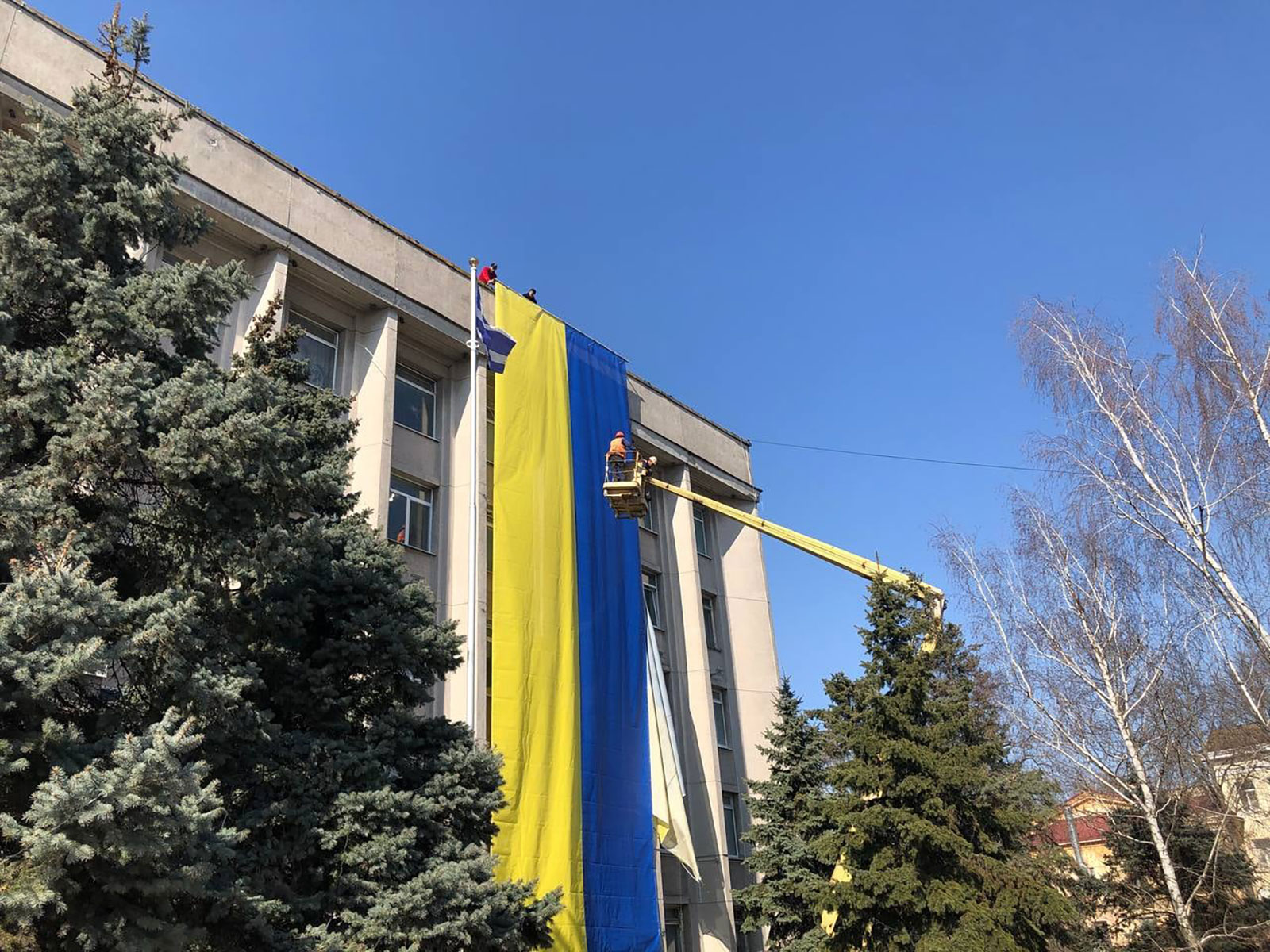New footage shows the extent of destruction in some cities caused by Russia's month-long invasion of Ukraine, as Western leaders gather in Brussels to conduct extraordinary sessions of NATO, the European Council and the G7.
Destruction in Ukraine: It's been exactly one month since Russia invaded Ukraine, and Ukrainian President Volodymyr Zelensky is calling for worldwide demonstrations to mark the date.
The mayor of Chernihiv said the northern Ukrainian city's cemetery cannot handle all the dead. Badly damaged buildings line rubble-strewn streets, while still-burning fires fill the air with heavy smoke, as seen in a video from Mayor Vladyslav Atroshenko.
New videos from Mariupol show the desolation of the besieged Ukrainian city, with deserted, debris-filled streets, blown-out cars and destroyed buildings.
The first videos and images have emerged from the city of Izyum, showing widespread destruction, charred and bombed-out buildings, and bodies left in the streets. The Russian military claims to have taken control of the city, which the Ukrainians deny.
Meanwhile, a large Russian ship was destroyed in the Russian-occupied port of Berdyansk in southeastern Ukraine, according to the Ukrainian Navy on Thursday. CNN could not confirm the Navy's claim, although social media videos appear to show a large fire with secondary explosions in the port. And Ukrainian forces have pushed Russian forces back on the frontlines around Kyiv, a senior US defense official told reporters Wednesday.
Refugees: More than 2 million Ukrainian refugees have crossed into Poland since Russian forces invaded Ukraine a month ago, which is “the fastest displacement crisis we've seen since the Second World War," according to the International Rescue Committee.
One in every two Ukrainian children has been displaced since Russia began its invasion on February 24, according to the UN Children's Fund.
The US plans to accept up to 100,000 refugees fleeing the war in Ukraine, a person familiar with the decision said.
Summits underway: Announcements on new sanctions, NATO force posture and military assistance are all expected as part of the diplomatic burst, according to US and European officials. What they won’t do is what Zelensky has repeatedly asked: Enforce a no-fly zone over Ukraine. Zelensky is expected to address NATO leaders virtually.
The NATO session currently underway was expected to focus partly on what to do if Russia deploys a chemical, biological, or even nuclear weapon.
Russian leadership: Kremlin spokesperson Dmitry Peskov dodged CNN questions about the health of Russian Defense Minister Sergei Shoigu and confirmed that longstanding government insider Anatoly Chubais quit his job as President Vladimir Putin’s climate envoy.
